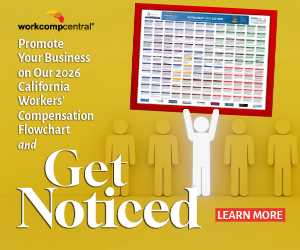Industry Insights
November 21, 2017
Keefe: The Biggest Claims Mistake Adjusters Make
- State: Illinois
- - 0 shares
We see it over and over and over again. When it happens, we try to smile and provide simple logic and common sense. We are not sure how it started, but however this concept began, we recommend putting it on the garbage pile of bad ideas that won’t work out.

Eugene Keefe
What is the big mistake? Well, I want my readers to know we are constantly asked by claims handlers on workers' comp, general liability and employment practices liability insurance claims to “ask the other side for a settlement demand.”
We are certain the idea comes from the claims concept of “doing something” to keep things moving forward. We understand the concept of getting a claim moving, but don’t make it move like this!!
Never ask the other side for a settlement demand
To best understand, consider a common transaction that is always happening all around us — home sales. If you want to sell a home, you can go to any number or real estate brokers and look at what they have for sale. You can also go online to Zillow.com, Redfin.com or Trulia.com and look for yourself.
There is no real estate broker or real estate web sales site that lists homes for sale for “whatever you want to pay.” Every real estate owner, sales person and broker does his homework, carefully examines the property to be sold, compares it other properties for sale in the area and looks at “comps” — comparable sales of homes like that one.
The real estate websites do literally hundreds of comps online to constantly update values in your village/town/city and give you accurate information designed to best advise you on what to ask/pay when selling your home or buying one.
The equivalent of “comps” in our industry should be your reserves — based upon other similar claims with like-kind injuries and recoveries.
The important aspect that I am trying to teach claims handlers at every level is that starting any effective negotiation requires both “bracketing” and homework. I understand your bosses sometimes overload you with too many claims and too much to do on each claim. That said, I don’t feel you can aggressively and ethically handle settlement negotiations to give up the most important aspect by letting the other side do your homework and start the bracketing for settlement.
Trust me, if you ask plaintiffs' attorneys to demand whatever they want, in my experience, they will start wildly high and you then need to spend hours and hours bringing them back to reality.
I vote start the bracket yourself. Make a reasonable and fair offer. If claimant’s counsel doesn’t want to be reasonable, get the matter into a pretrial with one of state workers' comp arbitrators/commissioners presiding. Let the hearing officer know what you offered and why.
We assure you they are fair, honest and wonderfully professional. If they can bring the parties together, they will make every effort to do so. Please remember that the vast majority of our comp claims settle, year in and year out. A lot of the best settlements come via hard work by our hearing officers.
What is 'bracketing'?
The first party in a claim, real estate or sales transaction who says what he is willing to pay or accept has an enormous advantage. That is why all home sales have a price already defined and listed — to let buyers know what they may need to purchase the property and close the deal. He can look at the homework and research you provide.
After taking a look, he can counter lower at the risk of losing what may be a great deal for a house. If the house doesn’t bring offers, the real estate sales person and owner may have to get together and re-evaluate the asking price.
In short, my strongest recommendation in settling any claim is to first know the file backwards and forwards. You have to do your homework and understand the strengths and weakness of the claim. Once you are confident about your research/homework, it is imperative is to always, always make the first offer and thereby start the bracketing.
What's problematic about letting the other side start the bracketing? Learn, as I did, from the venerable Bernie Goldstein. Goldstein practiced law in this state for more than 60 years. I remember that he knew the advantage of starting the bracketing in negotiations, and if he had a file that was worth $20,000, Bernie would always ask for $118,000.
When you told him that was outrageous and there was no way you could get that much from your client, he would then drop the demand to $78,000. I remember arguing with him and telling him it was still exponentially more than my client would pay, and he would drop the demand $40,000.
What I always remember from such discussions was to beat Bernie to the punch and always start the bracketing: If the claim was worth $20,000, I would contact the client and offer $10,000 at my earliest opportunity. If Bernie countered at $78,000, I was a lot easier to hammer him down to the $20,000 range.
Always send the paperwork
As a final note, my new approach to all settlements in my comp, GL or EPLI practice is to create the needed settlement documents, have the client approve them and then forward them to the other side as my opening offer. Many times, if the value is reasonable, the other side will grab it, sign and get approval. If it counters with a reasonable value within my authority, we can quickly modify the settlement documents and, with client approval, re-sign and resend.
If you don’t send the paperwork, it leaves the negotiations somewhat nebulous and open. I have had great results by ensuring that my team and clients understand the value in not just talking about settlement but actually putting the paperwork together, getting client approval and hammering out a final deal with the other side.
Eugene Keefe is a founding partner of Keefe, Campbell, Biery and Associates, a Chicago-based workers' compensation defense firm. This column was reprinted with his permission from the firm's client newsletter.
Advertisements
Columns
- Montgomery: San Fran City Official Stole $627k From Workers' Comp Division 12/10/25
- Kamin: Ring the Bells for Settlement Season 12/08/25
- Paduda: Does Comp Care About Workers? 12/05/25
- Sandoval: Throwing Subrogation Under the Bus 12/03/25
- Johnson: Some Thoughts on Apportionment - And SIBTF 11/20/25
- Montgomery: State's First Responders May File Comp Claims for Trauma 11/14/25
- Snyder: Use This New Survey to Negotiate Better 11/12/25
- Holden: Workers' Compensation Act Withstands Another Constitutional Attack 11/11/25
- Gelman: Sherrill's Win Locks in Worker Protections 11/10/25
- Kamin: Newsom Promises SIBTF Reforms in 2026 11/07/25
- Kamin: Comp Costs Hit Highest Combined Ratio Since 2001, WCIRB Says 11/05/25
- Montgomery: DIR to Blow $1.25M on Another Questionable Comp Study 11/03/25
- Wroten: California Sets the Standard as New Study Links Workplace Injuries to Heat Exposure 10/29/25
- Kamin: En Banc Clarifies Policy Reporting Requirements 10/27/25
- Gelman: PTSD-Stricken Officer's Disability Claim Denied 10/22/25
- Snyder: TAG a Structured Settlement Broker 10/17/25
- Snyder: New Medi-Cal Rules Can Affect Your Settlement 10/15/25
- Fish: Guarding Against PTSD Overdiagnosis 10/10/25
- Montgomery: DWC's MPN List Disappears Yet Again 10/08/25
- Ferguson: A Tribute to Thomas Chapman Lynch 10/06/25
Now Trending
- Workers' Compensation News
-
Calif. Court: WCAB
Has Duty to Flesh Out Witness
Statements When Workers Can't…
Posted on Dec 9, 2025
-
Calif. SCIF:
Ambiguity in Disability
Accommodation Rules Could Hamper…
Posted on Dec 8, 2025
-
Calif. Court Nixes
Requirement to Add Comp Coverage to
FAIR…
Posted on Dec 10, 2025
-
Mass. Worker's
Unreasonable Conduct Delaying Case
Results in Dismissal of…
Posted on Dec 8, 2025
-
Mo. Carrier Must
Pay Bill for Worker's Knee…
Posted on Dec 11, 2025
-
Wis. Employer
Wrongfully Refuses to Rehire
Injured Truck…
Posted on Dec 10, 2025
-
N.Y. Governor
Vetoes Fraud Assessment…
Posted on Dec 9, 2025
-
N.J. High Court:
Comp Judge Can Rule on Law She
Sponsored in…
Posted on Dec 12, 2025
-
Ga. Employer Faces
$20,522 in Penalties for Worker's…
Posted on Dec 11, 2025
-
N.Y. Board's
Denial of Worker's Occupational
Disease Claim Not Supported by…
Posted on Dec 8, 2025
Jobs
- Workers' Compensation Defense Attorney (REMOTE)
- Workers' Compensation Analyst
- Workers’ Compensation Defense Attorney - 100% Remote
- In-house REMOTE Workers' Compensation Litigation Attorney
- Defense Attorneys - Remote Work Available
- Defense Attorney
- Trial Attorney - Workers Compensation Staff Counsel Workers' Compensation Jobs
Upcoming Events
Mar 3-4, 2026
Save The Date! WCRI’s 2026 Ann
Registration will open up in the coming months. We'll see you there! - Leading national workers' …
Mar 5-6, 2026
DWC’s 33rd Annual Educational
Register Now! 2026 conference topics: DWC Update AI with a Claims Focus Medical and Legal Ethics …
Mar 19-20, 2026
DWC’s 33rd Annual Educational
Register today! 2026 conference topics: DWC Update AI with a Claims Focus Medical and Legal Ethi …
Social Media Links
c/o Business Insurance Holdings, Inc.
Greenwich, CT 06836




No Comments
Log in to post a comment